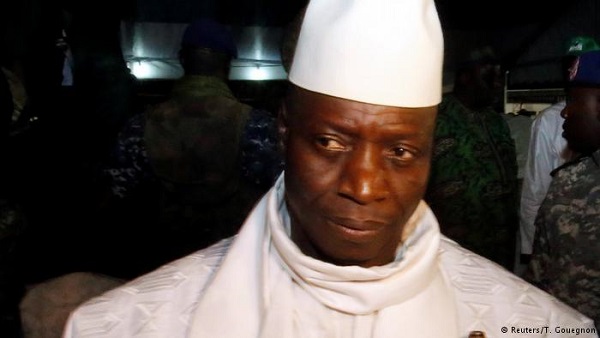Security forces in The Gambia have shut down two private radio stations, the main press union has said, amid a crisis over President Yaya Jammeh’s refusal to step down.
The closure of Teranga FM and Hilltop Radio was a “slap in the face” for democracy, said Emil Touray, the head of The Gambia Press Union.
This is the first sign of a crackdown on the media since Mr Jammeh refused to accept defeat in the 1 December poll.
He first took power in a coup in 1994.
The Gambian strongman initially conceded to property developer Adama Barrow, but then launched court action to annul the result, saying the poll was marred by irregularities.
The electoral commission said the poll was free and fair.
Both radio stations were closed on Sunday, Reuters news agency reports.
“People will not have access to information in this critical period of our history,” Mr Touray is quoted by Reuters as saying.
Four National Intelligence Agency operatives and a police officer visited the offices of Teranga FM to demand its closure, a staff member told AFP on condition of anonymity.
There has been no official comment from the government.
‘Climate of terror’
Teranga FM manager Alagie Ceesay was arrested in July 2015 on charges of sedition and “publication of false news” – allegations he denied.
The Gambia ranked 145 out of 180 countries in media campaign group Reporters Without Borders’ 2016 World Press Freedom Index.
It said there was “a climate of terror around anything remotely to do with journalism”.
The UN and West African regional body Ecowas have urged Mr Jammeh to respect the will of the people and step down when his term ends on 19 January.
Ecowas officials say that neighbouring Senegal’s troops are ready to intervene if Mr Jammeh refuses to hand power to Mr Barrow.
Mr Jammeh said that any deployment would be an “act of war”.
Mr Barrow caused a major upset by defeating Mr Jammeh by 43.3% to 39.6%.
The Gambia has not had a smooth transfer of power since independence from Britain in 1965.
It is a popular tourist destination because of its beaches.
Source: BBC Africa



